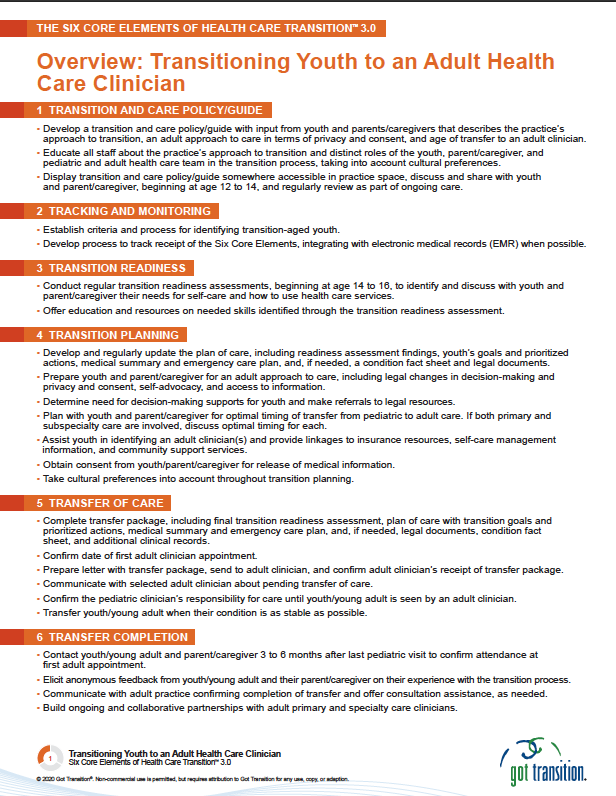WORKING
Whether you work for yourself or someone else, it is an important part of life to be productive and make money to support yourself.
Employment
VR Transition Youth Program
Helps students with disabilities ages 14-21 train for a job, continue their education, or find a job after high school. Provides career counseling, work readiness, and work experiences in the community.
Florida Department of Education
Bureau of Exceptional Student Education
Transition for students with disabilities, starting in 7th grade or at age 12 (whichever occurs first), to successfully move to life after school based on strengths, interests and preferences. Graduation RequirementsCareerSource Florida
Career Centers are across the state. Provides a Disability Specialist to help guide you, funding for services for people with disabilities, training, and support for employers who hire people with disabilities. Website: careersourceflorida.com
Agency for Persons with Disabilities
Helps individuals with intellectual and developmental disabilities get community employment. For more information about employment services visit APD’s website.
Employment First
Promotes the Florida Employment First law. Everyone has the right to work in their community, no matter what your disability.
LIVING
Supported Living
Supported Living helps people to choose where and how they want to live in homes of their own. A supported living coach or support coordinator, using in-home supports and community resources, can help people live on their own and be a part of the community.
Agency for Persons with Disabilities
Helps plan housing assistance and helps find a roommate using Roommate Matching Lists. Find an office near you.
Money Resources
- Find financial education at Money Smart Resources.
- The My Money Program provides educational lessons for individuals with developmental disabilities and important resources.
- Learn about ABLE Accounts, a disability a tax-free way to save, without losing government benefits.
-
For additional information about how the “Working People with Disabilities” legislation might affect individuals enrolled on the iBudget Waiver, please see the two documents from the Agency for Health Care Administration below.
You Can Work and also Receive Home and Community-Based Waiver Services
Social Security Benefits provides financial assistance to people with disabilities. Social Security Disability Insurance pays benefits to you and certain members of your family if you are “insured,” meaning that you worked long enough and paid Social Security taxes. Supplemental Security Income pays benefits based on financial need.
Florida Developmental Disabilities Council
Resources for housing.
LEARNING
Learning new things doesn’t end with graduating school. There is still much to discover through continuing your education, learning about your health, and how to speak up for yourself.
More Education after High School
There are lots of options for more learning – you can enroll for a degree at a university or state college. You can also enroll in an apprenticeship or a career and technical program at a state college or technical college.
Think College National Coordinating Center provides coordination, training, and evaluation services for Transition and Postsecondary Education Programs for Students with Intellectual Disabilities (TPSIDs). They also have a helpful website with resources for students, families, and others. They created a map and listing of all of the colleges in the US with programs for students with IDD. There is also a guide for families to use when considering colleges. Students contributed to this publication.
Download a Comparison Chart developed by the Florida Consortium on Inclusive Higher Education to compare post-secondary education programs that serve students with intellectual and developmental disabilities. Use this to keep track of what you like best about different schools.
The Florida Center for Students with Unique Abilities (FCSUA) has created the College Showcase Program Guide to use as a starting point and idea springboard for questions and topics to consider when speaking with postsecondary education programs.
- Comprehensive Transition and Postsecondary (CTP) Programs are federally approved for students with intellectual disabilities and may allow you to receive federal student aid.
- FPCTPs are Florida approved Postsecondary Comprehensive Transition Programs at universities, state colleges, technical colleges, and private colleges and universities, for students with intellectual disabilities.
For Students with Intellectual and Developmental Disabilities
- Florida International University Education: EMBRACE
Panther LIFE’s for students with disabilities is individualized and person-centered. - FSCJ: Vertical Training Program provides vocational workforce certificate with employment skills training.
- The ARC of Jacksonville at UNF supports transition into adulthood.
- UCF Inclusive Education Services offers an inclusive non-degree academic experience with a vocational focus.
- KSU's ASCE Program is an inclusive college experience, including social integration, career exploration and training.
- Florida Center for Students With Unique Abilities provides financial support so students have opportunities for on-campus college experiences and employment.
- UCF Inclusive Education Services offers an inclusive non-degree academic experience with a vocational focus.
- KSU's ASCE Program is an inclusive college experience, including social integration, career exploration and training.
- Florida Center for Students With Unique Abilities provides financial support so students have opportunities for on-campus college experiences and employment.
For Hispanic/Latinx Students with Autism Syndrome Disorder
- University of West Florida: Argos for Autism
- University of North Florida: THRIVE
- Santa Fe College: The Spectrum of Success
- University of Florida: Social GATORS
- Seminole State College: Full Spectrum Supports
- Nova Southeastern University: Access Plus
Health
Self-Determination
Self-Determination and Self-Advocacy: Disability Rights Florida
Play the video below on how to be an effective self-advocate.
